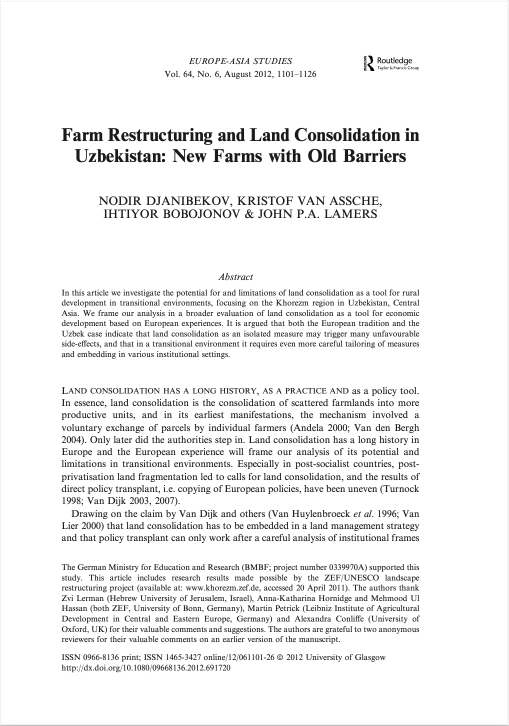Farm Restructuring and Land Consolidation in Uzbekistan: New Farms with Old Barriers
Resource information
Date of publication
June 2012
Resource Language
ISBN / Resource ID
ISSN 0966-8136 print; ISSN 1465-3427 online/12/061101-26
Pages
27
License of the resource
Copyright details
© 2012 University of Glasgow
In this article we investigate the potential for and limitations of land consolidation as a tool for rural development in transitional environments, focusing on the Khorezm region in Uzbekistan, Central Asia. We frame our analysis in a broader evaluation of land consolidation as a tool for economic development based on European experiences. It is argued that both the European tradition and the Uzbek case indicate that land consolidation as an isolated measure may trigger many unfavourable side-effects, and that in a transitional environment it requires even more careful tailoring of measures and embedding in various institutional settings.


